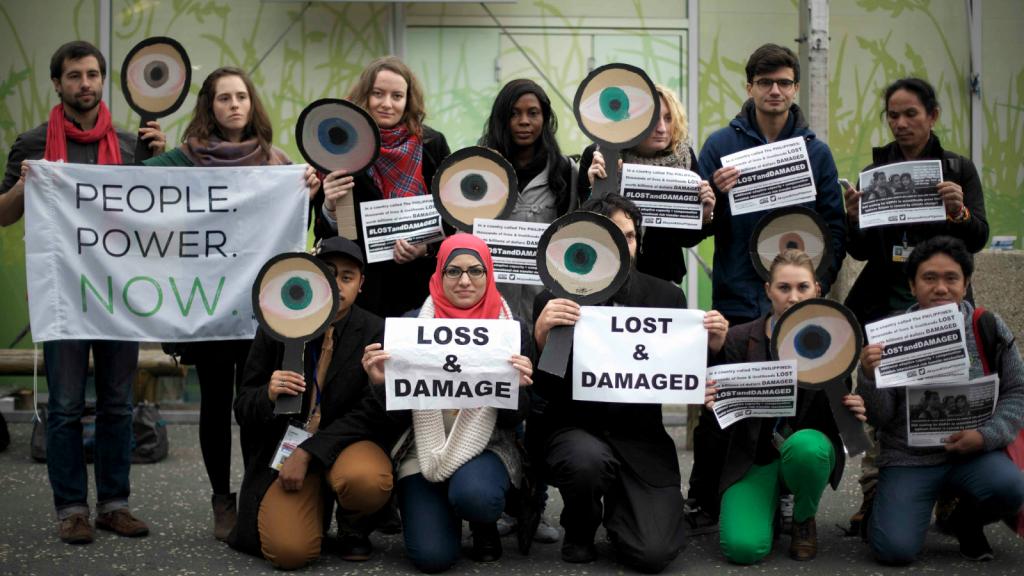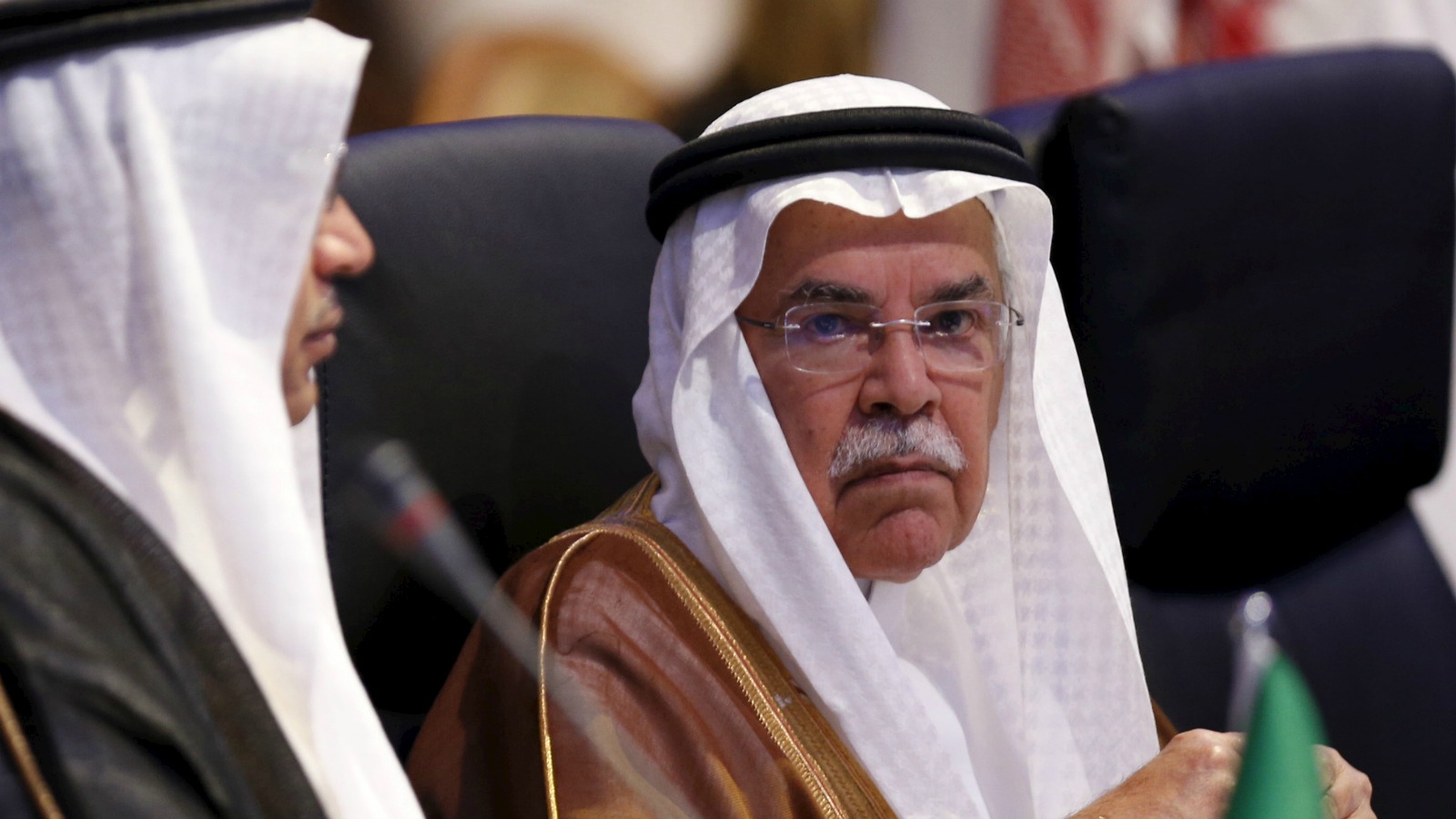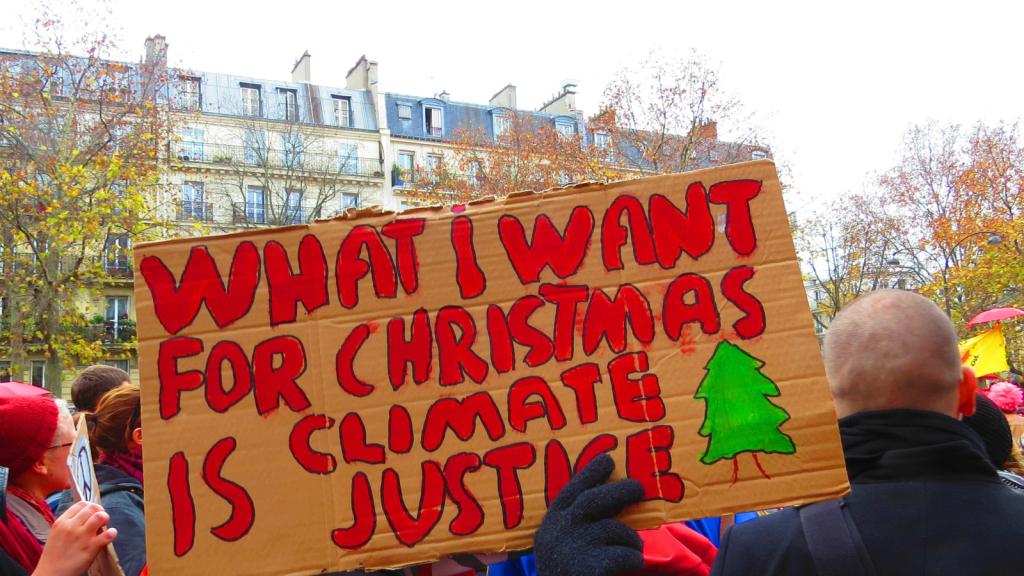This story was originally published by the Guardian and is reproduced here as part of the Climate Desk collaboration.
Saudi Arabia stood accused on Tuesday of trying to wreck the Paris climate summit in order to protect its future as one of the world’s largest oil producers.
As the talks entered the home stretch, developing country negotiators and campaigners became increasingly vocal in their complaints that the kingdom was getting in the way of a deal.
“They are seeing the writing on the wall,” said Wael Hmaidan, director of Climate Action Network, the global campaign group. “The world is changing and it’s making them very nervous.”
Those concerns about the future for an economy almost entirely dependent on fossil fuels was reflected in the negotiations, other observers said.
“Anything that would increase ambition or fast forward this energy transition that is already taking place is something that they try to block,” Hmaidan said.
Saudi Arabia did not immediately respond to requests for comment.
Until it was eclipsed by the U.S., the Saudi kingdom was the world’s largest oil producer and currently ranks as the 10th largest polluter, according to Enerdata.
Saudi Arabia has long played a high-profile presence at annual climate summits operating from the luxuriously appointed pavilions of the Gulf Cooperation Council — and over the years has regularly been accused of blocking action on climate change.
In the run-up to the Paris summit, however, the kingdom adopted a more amenable posture. Last month, it delivered a plan to fight climate change, pledging a “significant deviation” in emissions, but was the last G20 country to submit its offer to the United Nations, and analysts described the targets as opaque.
Last May, Ali al-Naimi acknowledged the global economy was moving away from fossil fuels — and said that Saudi Arabia was prepared to move with it.
“In Saudi Arabia, we recognize that eventually, one of these days, we are not going to need fossil fuels. I don’t know when, in 2040, 2050 or thereafter,” he said.
Oil analysts note the kingdom also faces enormous domestic pressure to diversity its electricity supply. Nearly all of Saudi Arabia’s domestic electricity supply comes from oil, and keeping the lights on and air conditioners humming is taking up a growing share of production that would otherwise have been sold for export.
Behind the closed doors of negotiating sessions, however, the Saudis have strenuously resisted efforts to enshrine ambitious goals into the text of a Paris agreement.
The Saudis objected even to the mention of 1.5 degrees C — a new more ambitious target for limiting warming now endorsed by more than 100 countries including vulnerable low-lying states and big polluters such as the European Union and U.S.
The kingdom balked at the goal of decarbonizing the economy by 2050.
The Saudis have also objected to demands for periodic reviews of climate plans, according to accounts from negotiators and observers. Saudi delegates complain that submitting a climate plan before Paris was difficult enough.
“It is unacceptable for developing countries, like my own, to be asked to participate in this so-called ratchet mechanism,” the Saudis were reported to have told the session.
“It was tough, we had to go to every ministry, every part of government. We developing countries don’t have the capacity to do this every five years. We are too poor, we have too many other priorities. It’s unacceptable,” a Saudi delegate said.
And although Saudi Arabia ranks as the world’s 15th largest economy, it has resisted efforts to grow the Green Climate Fund to help poorer countries cope with global warming — insisting only industrialized countries contribute.
Saudi negotiators have also demanded that if tiny islands like Kiribati be compensated for climate change, they should also be protected from loss of future oil income, and they have sought financial aid to acquire new green energy technology.
By Tuesday, the Saudi obstruction had even begun to rankle with other members of the Arab League, campaign groups said.
Egypt officially embraced the 1.5 degrees C goal at the start of the talks. However, Arab countries as a bloc have yet to endorse the more ambitious target — even though countries such as Morocco are hosting next year’s U.N. talks and have been praised as progressive on climate change.
“We feel Saudi Arabia is playing a bully role in undermining the position of other Arab countries,” Hmaidan said. “It is unfortunate that the Arab group is the only group opposing 1.5 degrees C.”



